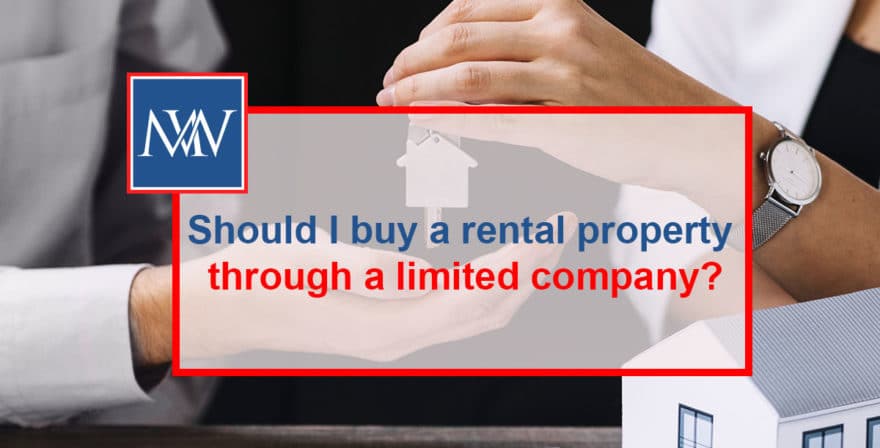
Should I buy a rental property through a limited company?
Landlords hit by recent and forthcoming tax changes may wonder if it is better to buy a rental property through a limited company, rather than holding it personally.
Holding it personally
Where a property is held by an individual, the property income tax rules apply. The profits of the property rental business are charged to income tax at the individual’s marginal rate of tax. If a loss is made, this can only be carried forward and set against future profits of the same property rental business. The personal allowance is available if not used elsewhere.
Interest relief restrictions have been phased in progressively from 6 April 2017. For 2019/20, 25% of the interest can be deducted in computing taxable profits (attracting relief at the landlord’s marginal rate), with relief for the remaining 75% given as a tax reduction at the basic rate. From 6 April 2020, relief for all interest and finance costs will be given in this way.
When purchasing the investment property, if it is a residential property and the landlord already owns at least one other residential property, the 3% Stamp Duty Land Tax (SDLT) supplement applies.
On sale, capital gains tax will be charged on any gain. The higher residential rates apply – 18% where total income and gains do not exceed the basic rate band and 28% thereafter. The individual can set his or her annual exempt amount – set at £12,000 for 2019/20 – against any chargeable gain where available.
Owning it through a company
Where a property is owned through a company, any profits are charged to corporation tax rather than income tax. There is no equivalent of the personal allowance – so profits are taxed from the first pound. However, at 19%, corporation tax rates are lower than income tax rates. The interest rate restrictions do not apply to companies, and interest is deductible in accordance with the corporation tax rules.
Companies pay corporation tax on chargeable gains and any gain on disposal of the property is subject to corporation tax. There is no annual exempt amount, and basic rate taxpayers pay capital gains tax at a lower rate than the corporation tax rate payable by companies; however, at 28%, the rate payable by higher rate taxpayers is more.
If the value of the property is more than £500,000, the company will also have to pay the annual tax on enveloped dwellings. The amount depends on the value of the property – ranging from £3,650 for a property in the £500,000 to £1 million bands to £232,350 for properties valued at £20 million or more (2019/20 rates).
Where the property is brought by the company, SDLT will be payable, with the 3% supplement applying to the purchase of residential properties.
Buying through a company will also raise the issue of how best to extract the profits, and once personal and dividend allowances have been used, this will trigger personal tax liabilities in the hands of the recipient.
Do the sums
The best option will depend on personal circumstances, and there is no substitute for doing the sums. Remember to take account of the non-tax considerations, such as the additional costs associated with running a company and higher borrowing costs.
For more information Should I buy a rental property through a limited company? , Book a Free Consultation
Need Accountancy Support?
For information on bespoke training, or if you have any other questions for Makesworth Accountant, please fill in your details below
















 151
151